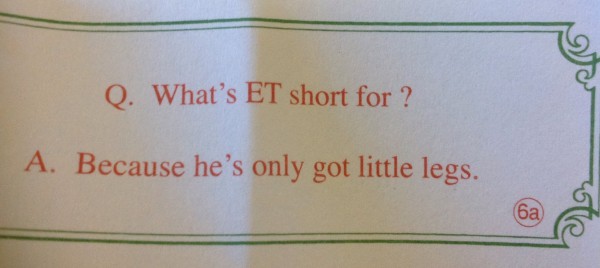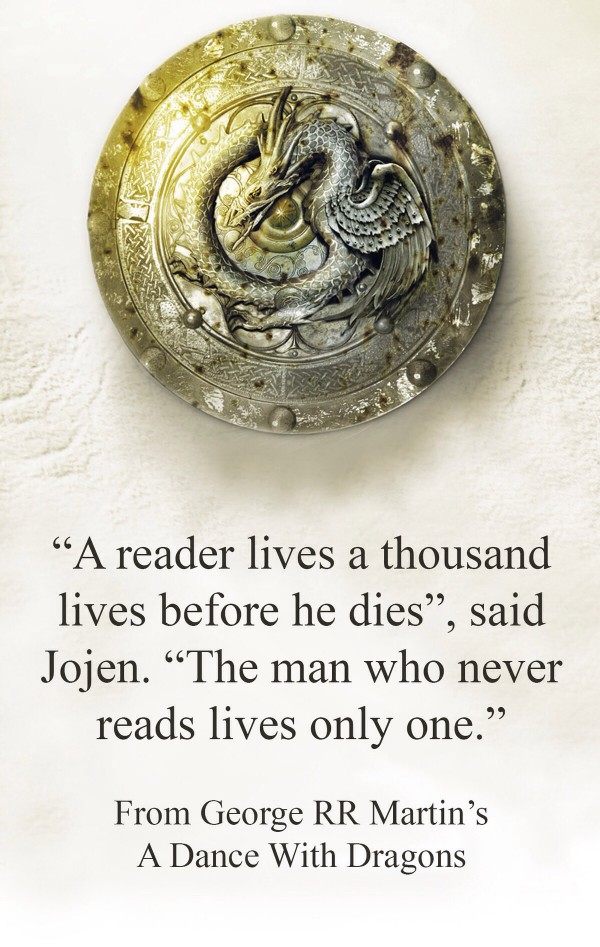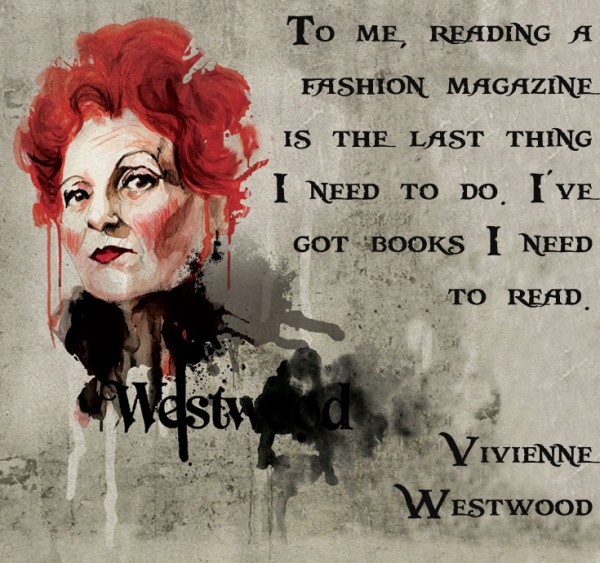The Sequestered Nook
I like a little sugar in my tea, a smidgen of cheese on that cracker, some garnish on a salad (but not too much) and ... (running out of food metaphors)... something novel in a novel.
Spritz Reader - will it revolutionise reading?
I'm pretty excited by the prospect of being able to read twice the number of books in my lifetime ... But will I be able to 'do the voices' at this speed?
Allegiant

Erm... Can someone stop the merry-go-round. I want to get off....
'Cause I'm losing my sight, losing my mind
Wish somebody would tell me I'm fine
Losing my sight, losing my mind
Wish somebody would tell me I'm fine
DNF
Sorry for the rubbish review - I'll try and get back to it some day :-(
 8
8
Sabriel (Or a book-shaped remedy to an angst/ fantasy trope overdose)

If you’re in the mood for a roller-coaster ride of cheap thrills and instant gratification save Sabriel for another day.
Garth Nix introduces his fabulous world in rather more reserved prose than is the norm’ for fantasy authors but, like the insidious and glacial river which draws souls through the nine gates into eternal death, this book quietly pulled me under but spat me out a few days later - straight into the sequel.
Admittedly, I have a particular affection for fantasy books which take inspiration from England’s borderlands and Scotland. I live in Northumberland (the northernmost region of England), very close to Hadrian’s Wall and the border with Scotland so this setting always serves to bring me closer to the author’s fantastical creation (“I’m a Stark”; “I’m Harry Potter – watch me fly my broomstick around Alnwick Castle... sorry... Hogwarts”; “I’m an Abhorsen – watch me cross the wall” ... that kind of thing). In this respect Sabriel had a head start with me, but that head start was not squandered.
Sabriel, the main and titular character is amazing – I loved her. This girl gets shit done. Even better she does it without constant reflection on her feelings, or someone else’s feelings towards her, or someone else’s feelings about the shit that needs to be done. I wouldn't describe her as ‘kick-ass’, as others have done, particularly since that phrase has somewhat repellent connotations for me. For instance, she makes more than her fair share of balls-ups given that she is thrown into a situation well beyond her skills, training and experience but she picks herself up (OK, once or twice someone else picks her up) and carries on. She is also refreshingly capable of asking the right questions and makes ample use of this magical skill (it is a magical skill isn't it, since so many fantasy characters seem incapable of doing it? Or is it a mundane skill and because they are in fantasy-land the same rules don’t apply?) She is admirable, worthwhile, tough, astute, career-driven (her career just happens to be putting the risen-dead to rest) and somewhat stoic. Some reviewers seem to have been put off by the latter characteristic - someone even called her flat; since she is my new, joint first-place, YA fantasy heroine (taking her place alongside Aria Stark), I am evidently not among them. I was delighted by her self-possession, it was a refreshing antidote to the angst-overload of some recent YA fantasy.
By Sabriel’s side throughout is Mogget – a ‘free magic’ creature bound by ‘charter magic’ into the form of a talking cat. I am enamoured with cats who don’t talk, so cats who do are a bonus. Mogget is the comic relief to Sabriel’s sobriety but whilst Sabriel’s story, motivations and character are clearly defined, Mogget is an enigma. I did love him but he aroused the same suspicions as my own cat does – that he would fuck his owner up if he were big enough.
The ‘zombie’ foes are suitably horrifying, although I am reticent to call them zombies as they are rather more complicated, varied and often more disturbing than classical zombies – perhaps ‘zombie demon’ is a more accurate term.
(show spoiler)
The romantic aspects are gentle, understated, credible and an uninvasive backdrop to the real story. It is love the way it should more often be portrayed in YA fantasy; supportive, gradual, patient, kind and cherishing without being obsessive. Garth Nix successfully conveyed the sweet inevitability of love blossoming without ramming it down my throat and triggering my gag-reflex. Again, this was a most welcome and refreshing change.
I did have a couple of reservations. There is a point in the book where it would be prudent and possible for a character to share a piece of vital information. The character that has this information but fails to share it excuses himself by saying ‘I forgot’, which was extremely irritating of him. Also, I have to admit, that at times the fast-paced action and heart-pounding moments were somewhat stifled under the weight of Nix’s pragmatic tone – thankfully he did throw caution to the wind a few times which created an invigorating juxtaposition to his usual poise. I imagine he is a proponent of the saying, ‘Always leave them wanting more’.
The cover is fantastic (not the portrait cover, but the one with the symbol on it). You can’t see it in the photograph but it has shiny, little charter marks all over it which become visible or invisible depending on the light - magical!
In conclusion, Sabriel is a sincere, thoughtful and very promising introduction to a series. Of late so many series/trilogies have started with such ceremonial vigour only to promptly flounder on the treacherous rocks of serialisation. In contrast, Sabriel is a modest story, built upon the strong foundation of fascinating characters and a complex, imaginative world of innovative magical and political systems, all of which has enormous scope for further books. It raised hundreds of questions and I cared enough about the answers to dive straight into the sequel. Moreover, this book does not make use of a soap-opera-style, tune-in-next-time cliff-hanger; it simply does not need to rely on such mechanisms. This particular story is complete, my knowledge of the world is not and the information I seek is out there.
 2
2
Rivers Of London (or Midnight Riot)

‘Rivers of London’ made me yearn for some sort or mind-sync technology so I could enjoy each and every word at the exact same moment as my friends because it is crammed to bursting with quotable lines and laugh-out-loud moments.
The story was fantastically imaginative and full of fun and Cockney quirk. Aaronovitch's magical London is imbued with an infectious passion for his home-town and is brought to life by his intimate knowledge of the real city. The characters are wonderfully colourful and idiosyncratic creations but not farcically so and the villain was darkly comic and, I thought, truly sinister.
Peter Grant, Detective Constable with the Metropolitan Police and surprisingly amenable, if slightly bewildered, trainee wizard was not just the main character; he was a charmingly guileless, self-deprecating, realistically flawed, occasionally unreliable and quizzical companion, questioning and reacting and discovering right alongside me and, when I was finished the book, I truly missed his pithy and self-deprecating wit. For the audiobook version, Kobna Holdbrook-Smith, the narrator, proved to be the perfect voice for Peter – it really was a rare and flawless performance.
There are feint traces of Dr. Who, the series on which Aaronovitch cut his writing teeth, particularly in the relationship between Peter and the enigmatic Nightingale and in the transformation of the mundane into the magical. However, and this is akin to blasphemy in my circles, I'm not a big fan of Dr. Who so this shouldn't put anyone off reading it.
As an aside, I was a little sad that the title was changed to ‘Midnight Riot’ for the international audience, lest they confuse it with a geographical reference book – it is annoying, not to mention a little ironic, when publishers don’t assume good sense from their target audience - plus the original title was far more appropriate and just plain better. Also there was, apparently, some controversy regarding the earlier editions of the U.S. cover being changed to better disguise the fact that the protagonist is black *super-massive-eyeroll*.

My instinct is to recommend this book without hesitation however; I can see why some people might not enjoy it. It’s geeky, much of the humour and many references are quintessentially British (or at least what British people like to put out there as quintessentially British) and it is not in the least bit introspective – just pure entertainment, thrills, spills, chills, laughs, cleverness and all-round awesome.
Honestly, I could quote this book all day long and not get bored... and on that note I'm going to let Aaronvitch's words speak for themselves:
“Fuck me, I thought. I can do magic.”
“Which is how I came to be standing around Covent Garden, in a freezing wind, at six o'clock in the morning, and why it was me that met the ghost. Sometimes I wonder whether, if I’d been the one that went for coffee and not Lesley May, my life would have been much less interesting and certainly much less dangerous. Could it have been anyone, or was it destiny? When I'm considering this I find it helpful to quote the wisdom of my father, who once told me, ‘Who knows why the fuck anything happens?”
“What with the proliferation of gay pubs, clubs and chat rooms, it is no longer necessary for the single man about town to frequent public toilets and graveyards on freezing nights to meet the man of their immediate needs. Still, some people like to risk frostbite on their nether regions – don’t ask me why.”
""Are they really gods?"
"I never worry about theological questions," said Nightingale. "They exist, they have power and they can breach the Queen's peace - that makes them a police matter.""
"We can't have your people fighting each other," I said. The 'royal we' is very important in police work; it reminds the person you're talking to that behind you stands the mighty institution that is the Metropolitan Police, robed in the full majesty of the law and capable, in manpower terms, of invading a small country. You only hope when you're using that term that the whole edifice is currently facing in the same direction as you are."
"As I stepped onto the gloomy landing a word formed in my mind: two syllables, starts with a V and rhymes with dire. I froze in place. Nightingale said that everything was true, after a fashion, and that had to include vampires, didn't it? I doubted they were anything like they were in books and on TV, and one thing was for certain — they absolutely weren't going to sparkle in the sunlight."
Blood & Ice (or A Cautionary Tale Regarding The Folly of Buying a Book for its Cover)
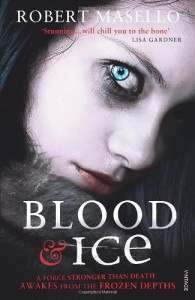
I didn't choose this book, it chose me.
From her place on the crowded supermarket bookshelf Eleanor Ames, with her vampiric complexion and ethereal-blue eyes peered over her shoulder, straight at me and whispered “Buy Me!”
“I'm not buying a book Eleanor, I just popped in for some carrots”, I protested, weakly.
“I promise”, she said in her dulcet tone, “You’ll be glad that you did."
I was at the checkout before you could say ‘carrots’ (let alone buy some) but Eleanor never did deliver on that promise...
An excerpt from a USA today review featured on the back of the book reads, "If H.G Wells, Stephenie Meyer and Michael Crichton co-wrote a novel, the result would be Blood and Ice"... After reading the book I'm not entirely convinced this was a compliment (looking at it now, I'm not sure how I ever construed it as such).
Masello is clearly a capable writer and the book is thoroughly researched. Reading about living and working amidst the eerie and alien Antarctic landscape was engrossing and the retrospectives of the Crimean War were enjoyable. The overall idea has lots of potential (I imagine a storyboard of the basic plot points might look quite exciting) but the execution was too convoluted for me. The intended thrills were anticlimactic, the romance was uninspiring and ill-fitted, the ending fell flat and the main character, Michael, was a bit of a husk; a mere plot vehicle and so impassive himself that it was difficult, as a reader, to feel anything more profound. It seemed to me that Masello didn't enjoy developing these aspects of his story; rather that he resented them bumming a lift on the back of his serious, journalistic endeavours.
In fact, in my head the book pitch went something like this.....

I didn't entirely dislike the book but it was full of frustratingly, unrealised potential and every time immersion crept up on me I was torn away to some other place or time or character. Some 500 pages after that uncarrotful trip to Tesco I closed in on the final chapters with relief and excitement for my next read, rather than in anticipation of an enticing and satisfying ending.
 3
3
 3
3
The Book Thief

In my, albeit limited experience, popular Young Adult Literature can often be loosely defined in terms of a product/consumer relationship i.e. the author does the hard work so I don’t have to. In the case of ‘The Book Thief’ Zusak has most definitely done the hard work, but if I thought I was in for an easy ride I was very much mistaken!
This book is intricate and complex. It is subtle and beautiful. It is quizzical and enigmatic. It is brimming with childlike perspicacity and humble truisms. It is experimental. It is heartbreakingly sad. It is in part hope and in part despair. Most of all, it is important and thoroughly worthwhile. I can think of very few books which I would trust to break the news of WWII to a young mind in any meaningful way, without scarring it irrevocably or causing it to lose all faith in humanity – The Book Thief is now one of them.
Admittedly, I was unmoved by the first half. I felt I was thrown into an alien landscape of poetry in prose; of metaphors and similes and personification (even a casual mesimification here and there). Occasionally gauche and a little clumsy, occasionally graceful and nothing short of brilliant the idiosyncratic style served to keep me at arm’s length. Try as I might I couldn't sink into the story, I couldn't get lost in it – albeit admirable and striking, it was all too unnatural and unfamiliar.
I was about halfway through and beginning to wonder why I couldn't engage the way so many others had obviously done before me when something happened (something = an exchange of gifts between people with nothing to give) and a deathly claw emerged from the pages, grabbed me tight, pulled me in and never let me go.
On finishing the book, I wondered whether there was method in the beautiful, occasionally awkward, detached omniscience of the first half. I wondered whether it had served to strip me of my preconceptions and put me on a more equal footing with the transcendental narrator, only to draw me back in when I was ready and on the sole merit of its content. I wondered whether everyone experiences this book differently; if there are different points at which each and every reader is drawn in to the story. Evidently, there are a lot of people who were never drawn in at all. I wonder whether they, if they ever read it again, at a different time in their life, would feel differently.
This book does not tell you what to think. It doesn't tell you how and when to feel. It does not stand in judgement. Rather it invites you to think for yourself, it invites to feel for yourself and, most importantly, it invites you to judge yourself. The only side of the war that is really explored in this book is the human side. It is a story about the futility of war on an individual level. It is a celebration of life and its ability to bloom amidst such destruction. It is a study of the value of human courage and kindness, childlike disobedience and adult defiance, and the danger of their counterpoles. It paints a captivating picture of the contradictions of human nature, luminous against the dark background of WWII. Most importantly, it is a cautionary tale of the very real and ever-present threat posed by the chance meeting of unchecked antagonism with an eloquent and power hungry catalyst.
How do you convey such ideas to a young mind without scarring it irrevocably or causing it to lose all faith in humanity? – Give them ‘The Book Thief’. For me, therein is the immense value of this book.
Rebel Heart (Dust Lands #2)
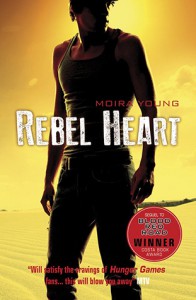
I feel a bit sheepish for the vitriol I am about to rain down on 'Rebel Heart', the second title of Moira Young's Dustlands Trilogy, after all, I did thoroughly enjoy the first half of the book but... it has a pretty serious case of 'Middle Book Syndrome'.
This seems to be a growing epidemic within the Young Adult genre and, honestly, it is starting to grate on me. All books should be capable of standing alone, without being propped up by their much stronger prequels and sequels.
Once upon a time, in a land faraway, the middle book had an important job to do. It served to bring a sense of definitive direction and clarity to a story. It was climactic, it tantalised and it prepared the reader for what was to come. Middle books were dynamic and progressive and alive and, most importantly, essential to the overall plot.
Back to the present day and trilogies have become the fashionable format within Young Adult literature, the purpose of which seems long-forgotten and the poor, middle book is collateral damage. It doesn’t seem to matter if an author only has enough story to drive two books at a good pace, they stick the middle book in there regardless.
A recipe for Leftover-Hotpot The Middle Book in a Young Adult Trilogy:
Take plenty of filler and stodge (nobody will ever notice), add a juicy bone, or two, left-over from book one and, if rations are still looking a bit meagre, add a little bit of something tasty which you had intended to put in book three. Garnish with plenty of angst, a sprinkle of plot holes and serve whilst hot.
'Rebel Heart' is far from the worst offender, just the latest in a long line and the sting is particularly painful because I really did love Blood Red Road (Book 1). The first half really was very enjoyable, despite Jack's conspicuous absence from all but the first chapter (he was a firm favourite of mine in the first book). There was a lively, new character in a pink dress who went some way to make up for this and the chapter that follows Saba's solitary journey along the Wraithway was particularly gripping. Then, about half way through, came the chapter, aptly titled 'The Lost Cause', where it began to stumble and, for me, it never recovered.
This may sound like bias on my part but I really do think the book would have been better if it continued how it started; from Jack's perspective. Perhaps, this would have been impossible in the overall telling of the story (I am yet to read book 3), but I think it would have given this book more purpose, a fresh perspective and it would have been a more rounded and compelling stand-alone story without falling foul of the dreaded MBS.
The silver-lining is this – I am no longer faced with an excruciating wait for 'Raging Star' (Book 3). I will definitely read it on the strength of 'Blood Red Road' but I am not nearly as excited about it now as I thought (and hoped) I would be.
Abraham Lincoln: Vampire Hunter
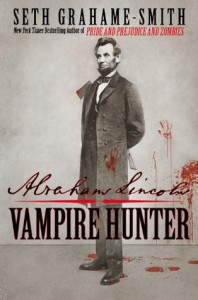
Things I really liked about this book:
- It was well written.
- It was original.
- Abe Lincoln was a badass with an axe.
- Vampires were, well, vampires – most of whom ended up on the wrong end of said axe.
- Edgar Allan Poe had a cameo.
- It is completely ridiculous in the best possible sense of the word.
Things I didn't like about this book:
- The fact that it was the progenitor of Abraham Lincoln: Vampire Hunter The Movie. It may be completely unfair to make any judgement of a book based on its film adaptation but I don't care. I want those two hours back and I want my previously, untarnished memory of this book back too.
My recommendation: Read the book, do not watch the film (in fact bury the DVD in the garden so it cannot make it back into circulation).
The Name Of The Wind

Five Stars are inadequate - If I could, I would light up all the stars the universe has to offer for this book!
Before I read 'The Name Of The Wind', I was under the impression that fantasy authors had a secret rule-book squirreled away in the depths of an enchanted forest, where a hidden door had been carved into a magical oak tree, which was under the protection of a powerful sorcerer. Only those worthy enough to find and retrieve the book unscathed were granted the power to create a successful fantasy novel - but adventurers beware, break the rules and you'll pay through humiliating failure of epic proportions. Fortunately, nobody seems to have told Patrick Rothfuss about the book and like every great, accidental, fantasy hero he has beaten his own path to glorious victory - and it really is glorious!
Don't get me wrong, 'The Name Of The Wind' is not unrecognisable as fantasy. It doesn't just level fantasy-ville and build something new and terrifying in its place, rather, it is a sympathetic, re-imagining of the genre; the well-travelled and worldly-wise stranger who rolls in to town with new ideas and exciting tales of distant lands.
The writing is exquisite; it is precise, refined and nimble but has an almost indefinable, effortless quality. I am quite sure that it wasn't effortless for Mr. Rothfuss, unless he is actually Kvothe (the comprehensively talented main character of the book), but that is how it feels. This is the first thing that sets it apart from the other greats of this genre; no matter how good they are you can always tell that the masterpiece has been built on an unhealthy amount of blood, sweat and tears but not in this case. The writing is so natural that I'm half inclined to believe that he wrote it on the back of some beer mats (ok, thousands of beer mats- this is not a short book), whilst a bit tipsy, down at the local with his mates, woke up the next morning and thought, holy **** this is pretty good. Not pretty good Patrick – it’s downright magical!
The narrative is unfalteringly clever and witty without being obnoxious. On occasion, when reading other books I have actually heard the author's voice invade my mind and say, "Ha, you see what I did there. I got you there didn't I? That's because I'm terribly clever!" at which point I invariably tell them to b***er off - but I never once swore at Sir. Rothfuss).
There is a plethora of wonderfully diverse characters to love or loathe as you will. I never warmed up to Denna, the elusive object of Kvothe's affections, but the writing was so good (did I mention that already?) and there was such an assortment of vivid characters to choose from that it just didn't matter. I imagine that you could, possibly, even get away with disliking Kvothe and still enjoy the book.
The story is breathtakingly wonderful. Since childhood a book has not been able to induce such joyful awe; I think I probably read the whole thing with a goofy, perma-grin, except for the sad bits and the tense bits and the scary bits - but I am sure they were accompanied by suitable facial expressions too. I say probably, because, I was so swept up in Kvothe's story that any worldly concerns vanished - a good thing too as I must have been quite a sight.
I would have added my favourite quote here but, honestly, it would have been 250,000 words.
My final offering at the altar of Rothfuss is this; I took this book everywhere with me, and I mean everywhere (pre-kindle). I hauled it around London whilst 'sight-seeing' (the inside of that coffee shop was delightful and on the tour-bus the seat in front made an excellent book-prop), I took it to the pub (I shit you not - my friends were not amused - they made me put it away, the rapscallions!), I took it to work, I read it as I did our weekly food-shop, I even took it into the shower once (it's an art) - you get the idea. I mention this because this book is an epic fantasy in three parts; in other words it is a tome. Greater love hath no reader than to swap her little and beloved handbag for a sports-bag so as to never be parted from her 'Name Of The Wind'!
P.S. I realise that I may be doing a disservice to this book by being so effusive. I intended to play-down my gushing praise, just in case anyone ever reads this, so they could be as pleasantly surprised as I was, but this is one of my most favourite books of all time and I just couldn't reign myself in. I have since thrust my dog-eared copy into the arms of relatives, friends, friends' relatives... strangers and without exception it has been well-loved (and they weren't just saying that because they were afraid of me - you can always tell. It has even converted a couple of die-hard, anti-fantasy lunatics- Yes, Dad and Gareth's Dad, I am talking about you!
Oh and P.P.S. my boyfriend listened to the audio-book version as he is not an avid-reader (they do say opposites attract) and now he is so spoilt that he cannot listen to audio-books anymore. Three actual quotes: "Why don't all the audio-book readers do the voices?" and "Why doesn't Rupert Degas do more audio-books" (he has done at least 84 that I can find, poor chap!), and "I don't want to listen to this anymore. It's not as good as The Name Of The Wind one".
So there you have it. Please read it (or listen to it) - It will make the world a better place!
 4
4
The Fallen Series - Fallen, Torment, Passion and Rapture
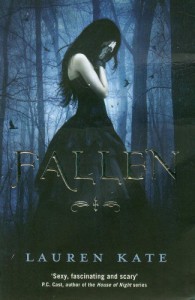
Fellow explorers of YA literature, beware of resting your weary heads here! You may have been lured by the atmospheric cover art or the predominantly positive reviews but approach with caution!
I have read all four of the main books in this series (Fallen, Torment, Passion & Rapture). I thought the first book, Fallen, was better than the rest, in much the same way that I think snails are better than slugs. The last book, Rapture, was almost unbearable.
Why would I read a full series of books which I disliked so much? Well that is a terrible tale of woe; a tale of deserted, weather-beaten islands, ill-preparedness and a new kindle with nothing but Lauren Kate on offer. The series had been recommended by a friend who usually has very similar taste, alas, she withheld an important bit of information – she had only read the first book. By the time I finished Rapture I realised that my time would have been better spent dancing in the rain or wandering, Heathcliffe-style, across the forsaken moors at the dead of night.
I didn’t like any of the characters with the exception of Cam, a demon who resided in the naughty corner of the mangled, central love-triangle.
(show spoiler)In the boring corner was Dreary Daniel the Fallen Angel and for the top of the triangle, where most authors choose to pin their star-attraction, Lauren Kate chose Moosey-Lucy (Luce). There is not an awful lot I can say about Daniel and Luce as they inspired nothing but apathy and occasional irritation. Luce was a love-sick, female ‘protagonist’ who spent most of the book prostrating herself before Daniel and, if she ever ventured to do something of her own accord, it was invariably idiotic. Throughout all of the books Daniel reminded me of the scene in Gone With The Wind when Rhett Butler finally gets sick of Scarlet O’Hara and says, “You are tired, you’d better go to bed.” Daniel might as well have just repeated this line every time he spoke to Luce, such was his dismissive attitude towards her abilities (beyond that of being his pin-up girl) and whilst I can sympathise, given that she was a liability, he was supposed to love and respect her.
Technically, the writing wasn’t bad but it wasn’t good enough to make up for the tenuous story, the careless ending, the cardboard-cut-out characters or the regressive portrayal of both men and women. For those who really want to give this series a go, my advice would be to try the first one, if you love it, as many have done before you, then ‘Good luck and Godspeed my friend’! If not, then do not carry on with hope in your heart – it does not improve and you will only be hurting yourself.




 3
3
